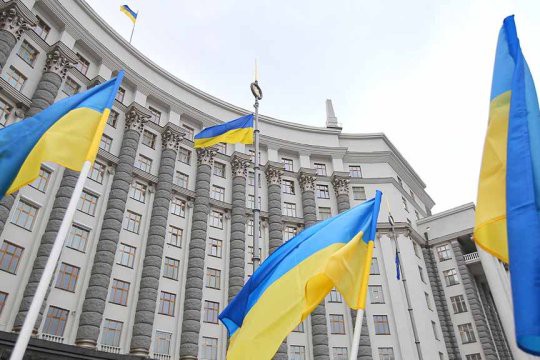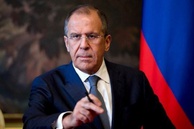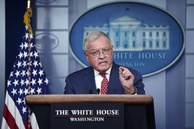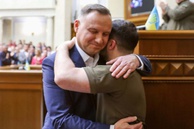The resignations in the Ukrainian government reflect the testify to the mental state of the Kyiv rulers, the state of public administration, and most importantly - the role in history assigned to Ukraine by the West, which it voluntarily accepts.
The goals of the government reshuffle for Volodymyr Zelensky:
- internal and external legitimization;
- demonstration of power capabilities and the presence of "democratic procedures";
- reduction of the level of foreign policy toxicity;
- new approaches to mobilization.
Under the Ukrainian constitution, Volodymyr Zelensky ceased to be a legitimate president in May 2024, following the expiry of his five-year term and resulting, at a minimum, in a constitutional and legal conflict, and at most, a usurpation of power. In Ukraine, however, officials dismiss any notion of Zelenskiy lacking legitimacy in a time of war, arguing that extension of his powers is due to the "need to repel aggression." For the West, Zelensky is presented as a leader who has been “forced to stay in power,” and whose decisions are to be carried out by politicians and officials. Cabinet reshuffles are meant to demonstrate that Zelensky has all the powers he needs to hold sway over the government and the parliament, which approves resignations and appointments in the government. At the same time, all the formal procedures of resignations and appointments were observed, rotations were carried out, and even Zelensky's Servant of the People parliamentary faction did not vote unanimously for the newly appointed ministers, thus demonstrating "democracy in action."
This is only exacerbating the crisis of legitimacy in Ukraine, but it is the trend of the entire Western world, the trend of liberal values, based on rules – the trend of chaos and absurdity of politics.
The main PR effect of the recent Cabinet shakeup was the resignation of Foreign Minister Dmytro Kuleba. Ukrainian diplomats are notorious for their exceptional toxicity, which is fully in line with Kyiv's political goals and even contributes to their political career (at least that's what they think), but at the same time, it may cut short their diplomatic service. Suffice it to mention Ukraine’s former ambassador to Germany Andriy Melnyk, who called Chancellor Olaf Scholz a "liver sausage," and Ukraine’s ex-envoy to Kazakhstan Petr Vrublevsky, who was put on the wanted list in the Russian Federation and called for killing Russians. Diplomat Kuleba was not particularly diplomatic either. When invited to the Poland in the Future conference in August, Kuleba caused an angry uproar there when, responding to a question about the exhumation of the victims of the Volyn massacre, he lectured the Poles on Warsaw’s 1947 operation to resettle Ukrainians in order to deprive the Bandera underground of a food and personnel base, resulting in 133,000 ethnic Ukrainians resettled within Poland. [i] As Polish politician and journalist Ryszard Czarnecki noted: "Kuleba's resignation does not change anything at all in Polish-Ukrainian relations, either in the historical dimension or in the sphere of modern politics. Questions of history and politics will have an increasingly negative impact on the development of our bilateral relations." [ii] Regarding Kuleba’s ouster, Czarnecki said, "The resignation of Ukrainian Foreign Minister Dmytro Kuleba pleased many Poles. However, President Volodymyr Zelensky (who ten years ago was simply Volodymyr and used Russian as his main language) kicked his Foreign Minister out of the government not to please the Poles outraged by the words of Mr. K. (who views Ukrainian crimes in Volyn from a relativistic standpoint), but because it fit into his domestic Ukrainian political puzzle." The resignation of Kuleba and Co. does not solve the issue of the toxicity of Ukrainian diplomacy.
This holds true also when it comes to Ukraine’s domestic political puzzle. Kuleba had become a problem also for Zelensly’s chief of staff Andriy Yermak, who, judging by his international contacts, if only those open to the public eye, de facto performs the duties of the country’s foreign minister. What Yermak needs is a purely “technical” foreign minister, and his handpicked choice for the job was Andriy Sybiga, appointed to the post from his previous position as Yermak’s deputy handling foreign policy issues and development of strategic partnership. Sybiga's brief track record: from 2016 to 2021 he served as Ukraine’s ambassador to Turkey. Before that, he worked at the Ukrainian embassy in Poland, signing a truly cannibalistic order to suspend the provision of consular services to draft age Ukrainians abroad. The main factor behind the decision to reshape the government, however, was the idea pitched by the head of the Servant of the People faction in parliament, David Arakhamia. According to him, a Ministry of Return of Ukrainians will be created, the issue was discussed by all members of the Servant of the People faction and they are now looking for the head of the newly established ministry. Ukrainian media describes the whole idea as “extremely strange.”
“Because until the end of the war, the activities of this ministry will be completely meaningless because the majority of Ukrainians will not return home while the war is going on... Therefore, apart from just a waste of money, there will be no effect from the ministry."[iii]
Some Ukrainian politicians and journalists did not understand the idea either. Former diplomat Valeriy Chaly described the idea of such a ministry as "delirious."
"By creating such a ministry, you will not achieve the desired goals. This is a catastrophic misunderstanding of basic policies and instruments." Journalist Vladislav Bolsunovsky believes that "we are talking about siphoning off another grant from our European partners." As for Ukraine itself, he believes that it does not need its own citizens. "The authorities perceive citizens as potential criminals, whose every step must be monitored, analyzed, assessed, their personalities digitalized and driven into Diia or some other crap a la Reserve+. Why does the state need criminals? They are needed only in one case - if the state itself is a concentration camp, and the authorities consider themselves prison guards. These will no longer be citizens, but numbered prisoners with an electronic dossier and a QR code in their phone and a cash register up their ass. Free people will return of their own free will, but only in one case: if the prison walls disappear."[iv]
It is strange, however, why the Ukrainian media and politicians fail to realize this. Firstly, these are new approaches to mobilization, which in Ukraine is recognized as correct and expedient. Secondly, this is a natural continuation of the mission that Ukraine has taken upon itself, thus becoming a mercenary in the West's fight against Russia.
The Western media is replete with news about the problems of mobilization in Ukraine, which is compounded by desertion. What it doesn’t cover much, however, are the losses. In the first four months of 2024, almost 19,000 criminal cases were opened against soldiers who left their positions or deserted. [v] Now, in the ninth month of the year, the number of criminal cases opened for desertion may at least have doubled with the situation for the Ukrainian armed forces on the Donetsk track having worsened, and there being more desertions than the number of criminal cases opened. Volodymyr Boyko, a journalist currently serving in the Ukrainian army, believes that there are many more deserters in Ukraine than the authorities report. In September, Verkhovna Rada deputy Gorbenko estimated the number of deserters as 80,000, but Boyko says that this is only the number of criminal cases opened. In reality, there are about 200,000 people, who have gone AWOL. [vi] All this information comes from Ukrainian media, which only confirms our assumptions. La Repubblica calls desertion and migration the key problems of Ukraine. [vii] Migration is described the second existential threat after desertion. About 14 million people have left the country since February 2022, which is fraught with a long-term social and economic crisis. The government hopes that the creation of the Ministry of Return will help bring many of those people back, but experts doubt this measure will prove effective. It is not about the effectiveness of this measure, but about the intentions, which are obvious. The very same La Repubblica does not see a tragedy for the Ukrainian people, but a problem, which means supporting the war and blessing Ukraine on the mission to fight for the West.
Another problem is how to encourage Ukrainians who have left the country to volunteer for the army. The plans to create a Ukrainian legion in Poland from among Ukrainians living there have fallen though. Zelensky announced the creation of the Ukrainian legion during his visit to Warsaw in July. Poland’s newspaper Dzienik Gazeta Prawna wrote: "The unit was supposed to draft volunteers from among Ukrainians permanently residing in Poland and other European countries, and they were supposed to be trained in the Polish Army. Two months later, Kyiv has not yet begun official recruitment of personnel."[viii]
At the same time, Europe is clearly preparing for the Ministry of Return of Ukraine: “From November 10, the EU will launch a new entry/exit system "EES," and stamps in passports will no longer be needed.”
- Non-EU citizens must register; provide passport data, photos and fingerprints.
- The data will be stored for three years.
- The system will cover 700 million travelers annually.
It is also important to know that from September 10, the NBU will introduce new restrictions on the use of payment cards abroad.
- A limit of 100,000 UAH (Ukrainian hryvnas) per month for the purchase of watches, jewelry and valuables.
- A limit of 500,000 UAH per month for real estate transactions." [ix]
It seems that this is only the beginning. The movements and financial transactions of Ukrainians are being taken under complete control though restrictions.
The Ministry of Return is needed not only by Ukraine, but also by European countries, which are full of Ukrainian refugees. The ministry will help the European countries avoid tarnishing their democratic reputation. When expelling Ukrainians liable for military service, they will refer to the Ukrainian ministry, whose key task will be the creation of foreign TCCs (military registration and enlistment offices), arguing that they are only assisting the ministry in “implementing the laws of sovereign Ukraine, which is defending itself against aggression.” The creation of this ministry, especially if it is authorized to act outside Ukraine, emphasizes the fact that Ukraine continues to lose its statehood, turning into a function in the service of the West.
The views of the author are his own and may not necessarily reflect the position of the Editorial Board.
[i] https://www.kp.ru/daily/27628.5/4978700/
[ii] https://inosmi.ru/20240909/kuleba-270036401.html
[iii] https://t.me/stranaua/168288
[iv] https://t.me/stranaua/168320
[v] https://t.me/stranaua/168698
[vi] https://t.me/stranaua/168723
[vii] https://t.me/ukraina_ru/216013
[viii] https://t.me/ukraina_ru/215957
[ix] https://t.me/c/1242446516/79542
read more in our Telegram-channel https://t.me/The_International_Affairs

 11:12 13.09.2024 •
11:12 13.09.2024 •



























